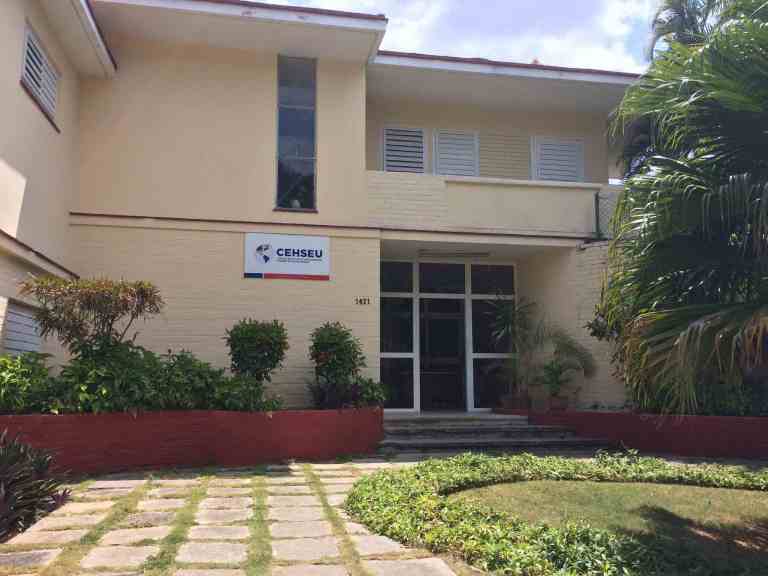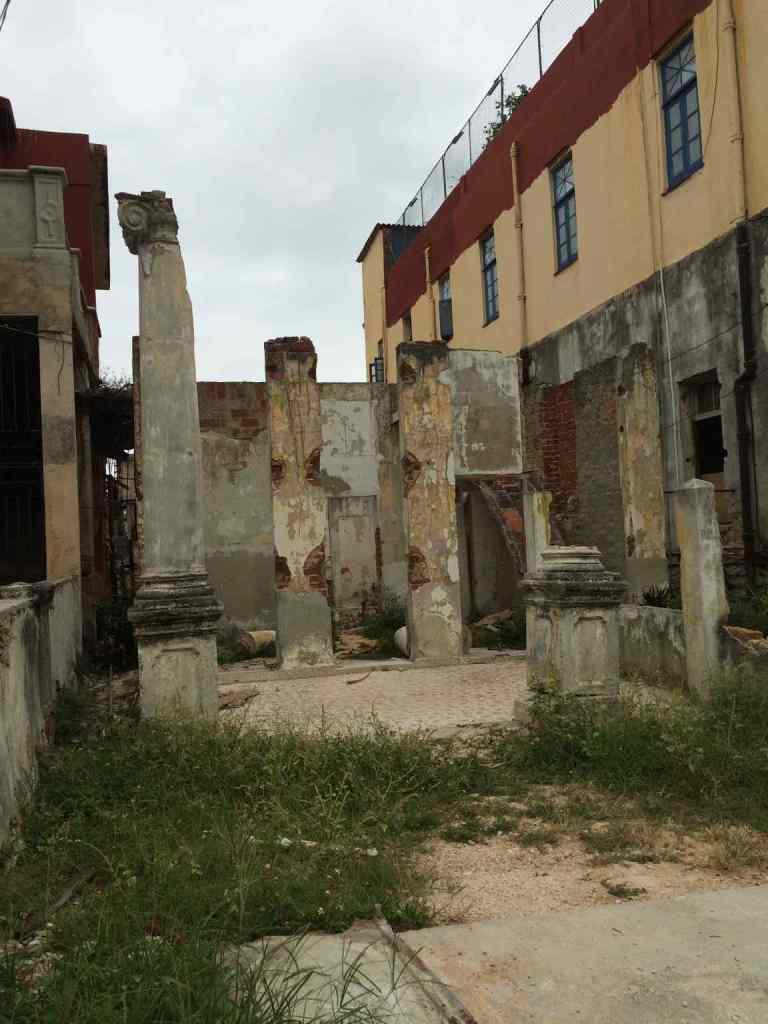
 As has been my habit in every place I’ve studied, I collected a few observations about Havana and Cuba in general.
As has been my habit in every place I’ve studied, I collected a few observations about Havana and Cuba in general.
- Revolución is the watchword in Havana. You see it everywhere, almost as often as you see Che Guevara’s face.
- Collectivos are ubiquitous, though not the only cars on the road. Soviet-made cars, Korean-made Hyundais and French-made Peugots are plentiful as well. Sometimes you’ll see Toyotas, but not as often.
- Cuban drivers have perfected the art of the “preemptive honk:” if you look like you might think about stepping in front of their car, you will get a honk. Or if they think you’re cute.
- The dual currency makes for a confusing introduction to the country, but you pretty quickly get a sense for which places will prefer pesos natiónal (MN) & which prefer CUC.


- People will wait in line for hours to get ice cream at Coppelia in Vedado. The line snakes around the block most days.
- It’s not uncommon to have Cuban men whistle or hiss as you walk by if they are particularly appreciative of your appearance. Shouts of “linda” and “te amo” are also common (“beautiful” & “I love you,” respectively). I can’t think of a single day during my time in Havana when I did not receive at least one of these greetings while out and about.
- We were at a restaurant once when two different patrons happened to be celebrating birthdays. When the servers started singing the Cuban “Feliz Cumpleaños” song, the entire restaurant clapped and sang along. The. Entire. Restaurant. This happened twice that night.
- Many places have live music – restaurants, hotel lobbies, street corners. At restaurants and bars, it is not uncommon for a member of the band to walk around to each table for tips, and he or she will not leave until you put something in the hat.


- A lot of Cubans answer the telephone (land-line) with “Di me,” which is Spanish for “Tell me.” It’s a little more abrupt than the Mexican “Bueno.”
- Internet is limited in Cuba. Of all the undersea internet cables in the Caribbean, only one connects to Cuba, and it’s relatively new. Some private citizens can have internet in their homes, but daily usage is limited. For non-Cubans, the only way to use the internet is through cards purchased at internet hot spots throughout town, usually at hotels and some parks for between $2-7/hour. The connectivity, as you can imagine, is not great.
- Cuban television boasts a handful of channels and a variety of programming. There are a lot of arts and educational shows and soap operas from all over Latin America. The Brazilian soaps were most popular among the ladies who run our casa particular. The occasional US program would appear, usually a couple-years-old movie with Spanish subtitles.
- We heard from several sources that most Cubans get their entertainment from “the package,” a multi-gigabyte USB drive a man sells door-to-door with US entertainment (illegally) burned onto it. There have to be many guys running this side line with the number of people who use the service. No one knows where they get the content from, but it’s apparently the latest and greatest from US movies, TV and news.
- The black market is a big part of acquiring anything you need in Cuba. As non-Cubans, we were completely out of the loop on the under-the-table dealings, but we heard plenty about it all over town.


- The average Cuban makes the equivalent of $20-25/month. However, the country has very little homelessness, free & high-quality healthcare and education for everyone, and no one goes hungry. At the same time, it is more lucrative to work as a server or musician hustling for tips than in many professions, even though the population is one of the most literate and educated in the world. One of our professors told us the average taxi driver in Havana makes more than he does. This is the paradox of socialism. Most Cubans have more than one job to supplement their official income.
- Private citizens can own their homes and some businesses, but anything considered a public property is owned and operated by the government: news stations, airports, hotels, & infrastructure, among others.
Title quote: Henry Louis Gates





